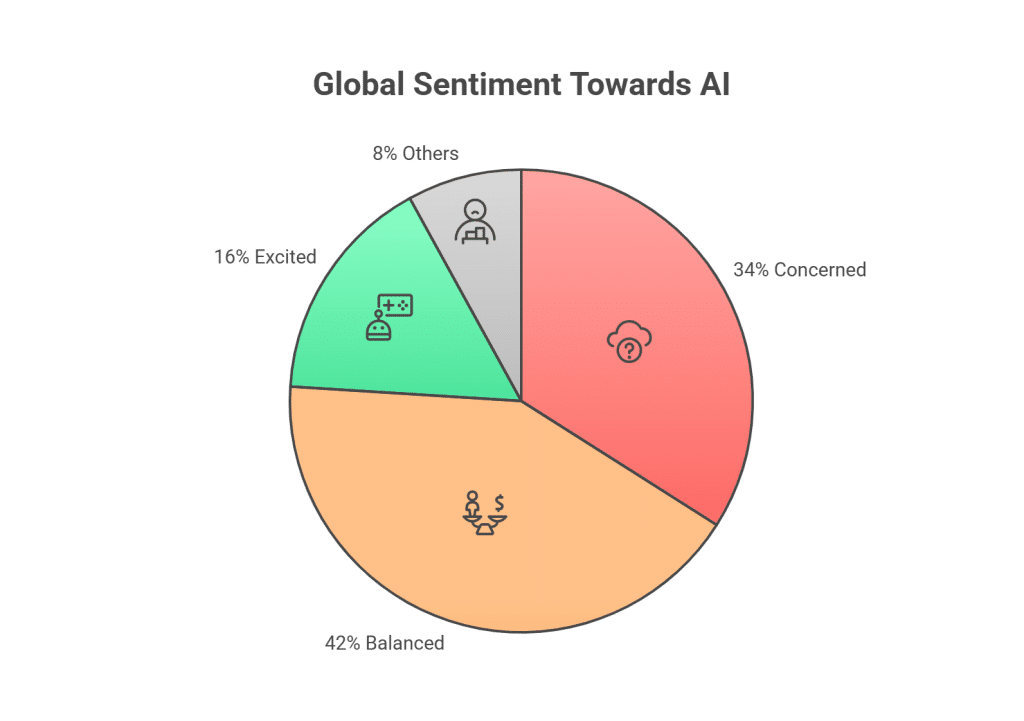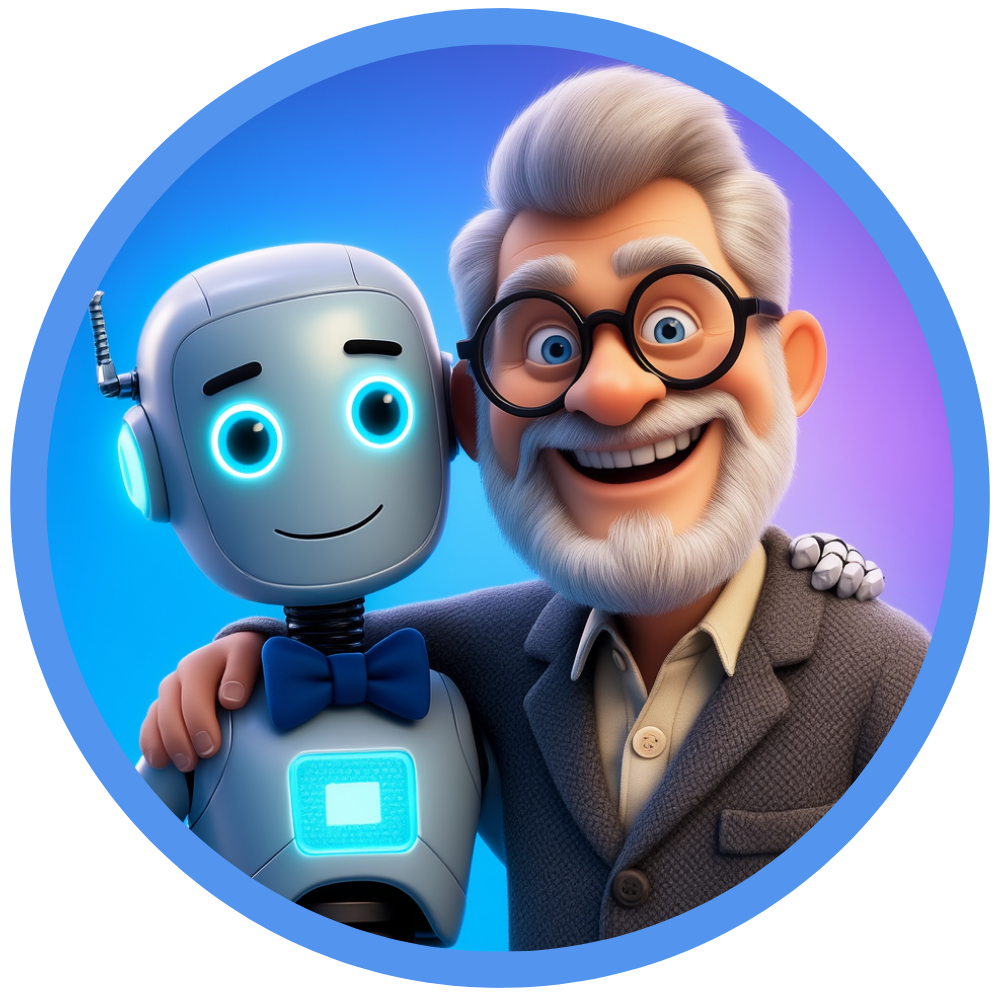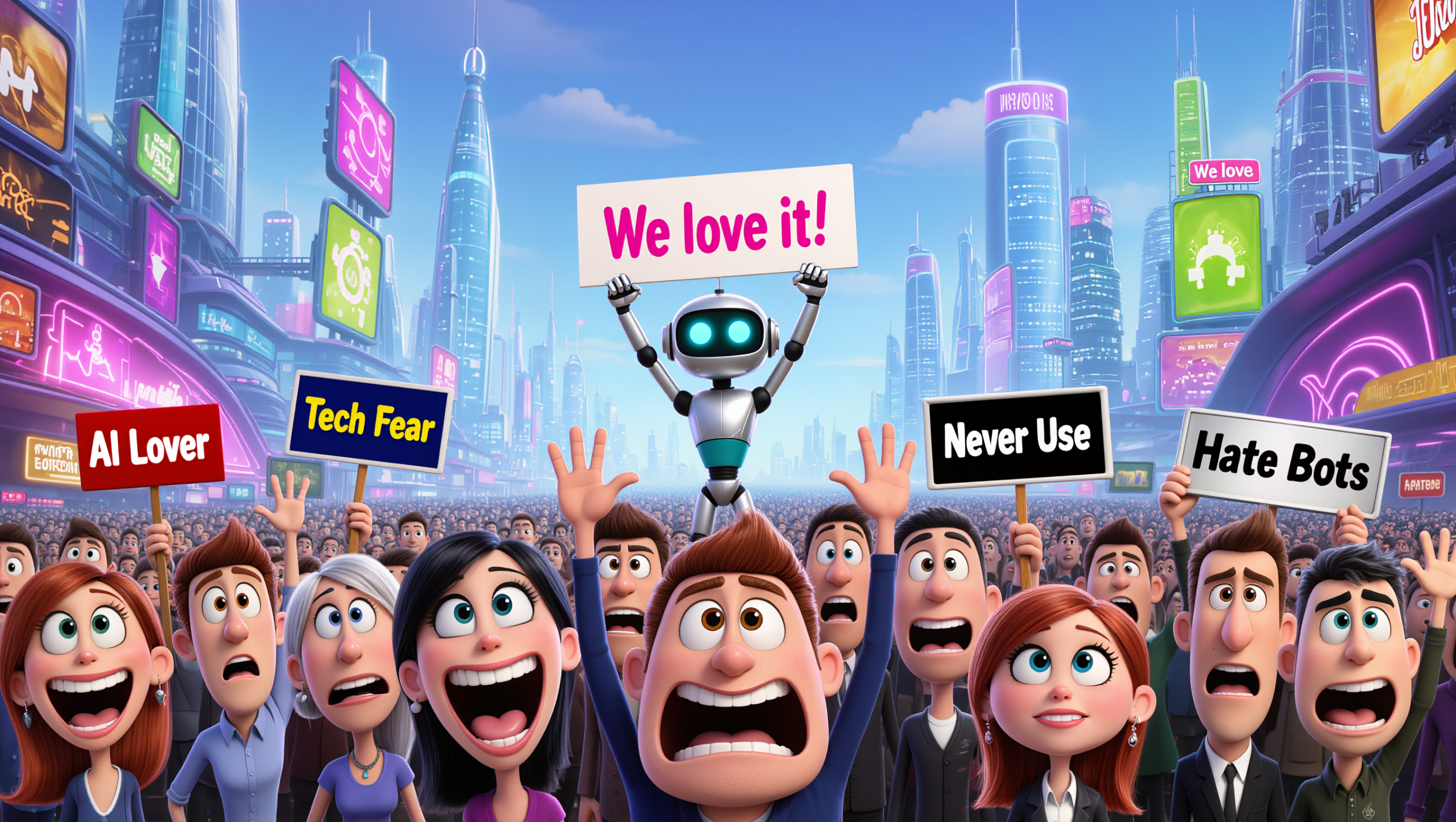Hey there, tech explorers!
A new report has just landed. Pew Research Center, “How People Around the World View AI,” Spring 2025 Global Attitudes Survey, October 15, 2025.
For the full report:
https://www.pewresearch.org/global/2025/10/15/how-people-around-the-world-view-ai
Key details about the report include:
- Conducted across 25 countries
- Surveyed public opinion on artificial intelligence
- Included analysis of awareness, concerns, and excitement about AI
The survey was conducted from January 8 to April 26, 2025, with:
- 28,333 adults surveyed internationally
- Surveys conducted via phone or face-to-face methods in various countries
Let’s dive deep into something fascinating – a global snapshot of how people around the world are feeling about artificial intelligence. Specifically, I want to draw from Section 2 of the report, which focuses on “Concern and excitement about AI“.
Spoiler alert: It’s not the robot apocalypse, but it’s not pure excitement either.
The Global Sentiment Breakdown
Here’s the real scoop on how people are feeling about AI:
- A median of 34% of adults across 25 countries are more concerned than excited about AI
- 42% are equally concerned and excited
- Only 16% are more excited than concerned

Why Are People Nervous? The Demographic Insights
The survey uncovered some fascinating patterns about AI concerns:
- Age Matters: Older adults are significantly more apprehensive about AI3
- In Greece, a stark contrast emerges: 59% of adults 50+ are more concerned, compared to just 18% of younger adults
- Gender Differences: Women tend to be more cautious
- In the United Kingdom, about half of women (47%) are more concerned than excited
- Compared to only about a third of men (32%)
- Education and Internet Use: Less educated and less frequent internet users show more concern
- In many countries, people with less education are more likely to be nervous about AI
- Those who use the internet less frequently express more apprehension
The Global Landscape
Some regional highlights:
- Roughly half of adults in the U.S., Italy, Australia, Brazil, and Greece are more concerned than excited
- South Korea stands out with only 16% being more concerned about AI
People aren’t just being irrational. The survey suggests real underlying concerns:
- Job displacement in certain fields
- Privacy and surveillance implications
- Potential for AI-generated misinformation
- Over-reliance on automated systems
This isn’t about fear – it’s about thoughtful adaptation. Your life experience is your greatest asset in understanding AI. Remember how we adapted to smartphones, the internet, and email? This is no different.
The Wisdom of Experience
Here’s what makes your perspective unique:
- You’re natural fact-checkers with healthy scepticism
- You understand the importance of human connection
- You have context and lived experience that AI can’t replicate
My Thoughts: Navigating the AI Landscape
The Pew Research Center survey reveals something important: you’re not alone in feeling uncertain about AI. But concern doesn’t mean defeat – it means you’re thoughtful and discerning.
Understanding Beats Fear
At its core, AI is a tool, not a threat. Your life experience is actually your greatest asset in understanding this new technology. Awareness is the first step to empowerment, and you’ve successfully navigated complex technological shifts throughout your life.
Start Small, Think Big
The key is not to master everything at once. Instead, approach AI by experimenting with one low-stakes tool, allowing yourself to build confidence through incremental learning. Don’t feel pressured to become an expert overnight – small, manageable steps are the path to understanding.
Your Unique Advantages
You’ve already navigated multiple technological revolutions, which gives you a significant edge. Your critical thinking skills are invaluable in this new landscape. You inherently know how to adapt and integrate new technologies, a skill that serves you perfectly in the AI era. Your decades of life experience provide a nuanced perspective that younger generations often lack.
Practical Next Steps
Begin by trying a free AI tool like ChatGPT or Claude. Start with a simple, low-stakes question that genuinely interests you. Reflect on how the tool might potentially help you in your daily life. The goal is to stay curious while maintaining a healthy skepticism.
Every technological wave – from personal computers to the internet to smartphones – seemed intimidating at first. AI is no different. You’ve successfully adapted to countless technological transformations before, and this one is no exception. You’ve got this.
Your AI journey starts with understanding, not panic. Technology evolves, and so do you. Warmly,
Walter



Leave a Reply